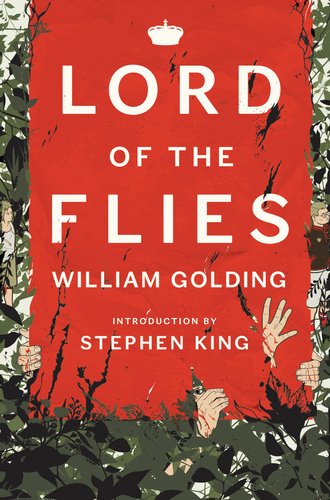All Nonfiction
- Bullying
- Books
- Academic
- Author Interviews
- Celebrity interviews
- College Articles
- College Essays
- Educator of the Year
- Heroes
- Interviews
- Memoir
- Personal Experience
- Sports
- Travel & Culture
All Opinions
- Bullying
- Current Events / Politics
- Discrimination
- Drugs / Alcohol / Smoking
- Entertainment / Celebrities
- Environment
- Love / Relationships
- Movies / Music / TV
- Pop Culture / Trends
- School / College
- Social Issues / Civics
- Spirituality / Religion
- Sports / Hobbies
All Hot Topics
- Bullying
- Community Service
- Environment
- Health
- Letters to the Editor
- Pride & Prejudice
- What Matters
- Back
Summer Guide
- Program Links
- Program Reviews
- Back
College Guide
- College Links
- College Reviews
- College Essays
- College Articles
- Back
Lord of the Flies by William Golding
Decoding Lord of the Flies
Most of the time, when you are looking for a good book, you first look at the title. The title of a book usually is truly revealed after reading it, then it often times has a hidden meaning. In Lord of the Flies (by William Golding) the title is only used once around the middle of the book. It is used to describe a rotting pig’s head that the boys secured as a sacrifice to the beast, hoping that in return the beast would not bother them. Among the mist of bloodshed, one of the hunters named Simon started talking to the head and gave it the title of the Lord of the Flies.
After the hunt the surviving boys had a feast and cooked the same pig that was the owner of the head. During a time when most of the boys were dancing around the fire, Simon came crawling out of the bushes to them making the other boys mistake him for the beast, or so said Piggy (a boy who is best friends with the leader of the group, Ralph.) When Ralph and Piggy talked about it the next day, Piggy said “that’s what it was. An accident.” His voice shrilled again. “Coming in the dark—he hadn’t no business crawling like that out of the dark. He was batty. He was asking for it.” (157.) The author gave the reader room to think about this thought, of why he crawled from the bushes that night and why the other boys had murdered him. Ralph was just realizing, this was the beginning of their small group drifting apart.
For some reason Simon had started to hallucinate or perhaps the Lord of the Flies really was talking, it had made a gap between Ralph’s followers and Jack’s. They had different thoughts on how to run the group and what was the most important thing to be focused on. Jack thought that his hunters were the most important thing, because without hunting they would most likely starve, though Ralph didn’t disagree completely he felt that being rescued was the group’s top priority. Ralph was the voted leader of the group, but Jack soon began to challenge him and later in the book separate the group. Most of the boys had gone with Jack, but some (including Piggy) stayed by Ralph’s side. Ralph and Piggy went to see Jack, which lead to Piggy’s death that included an ambush and a brutal fall off a cliff and onto the rocks below.
Ralph had escaped and was hiding from Jack and the others, who had decided to comb the island looking for him. Soon he ran to find the same thing that had drove Simon mad, the Lord of the Lies lie before him on the spear. It smiled at him as it had at Simon and it enraged Ralph to the point that it made him destroy it. “the scull lay in two pieces, its grin now six feet across.” (185) He retreated back slowly, eyes still on its face. “Then he backed away, keeping his face to the scull that lay grinning at the sky” (185) The Lord was destroyed at last, and soon Ralph and the others would be rescued by a pilot who saw the smoke from the fire that Ralph made sure kept going.
The deaths of two young boys and another missing as well as the split of the community is an example of how society can thrive for a period of time but in the end, we as the human race go back to our violent and blood stained roots. Within a few weeks, the boys in Lord of the Flies built, what could be called a small government and within the same few weeks had watched what they created fall and crumble to the thought of beasts and sacrifice. The author brought a remembrance of an old statement that had light shine upon it once again with the concept of “survival of the fittest,” one that will most likely be true once again in the future of our race. The question at the end of the book that one must ask themselves is; Is our true nature really based off of the blood our own kind and that to succeed we must first push the mighty down and take their place?
Similar Articles
JOIN THE DISCUSSION
This article has 2 comments.

